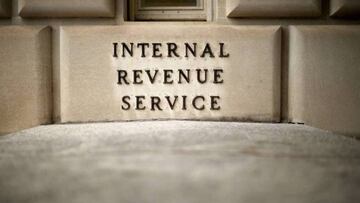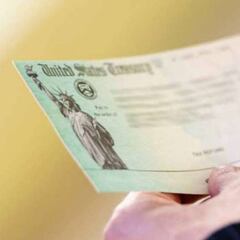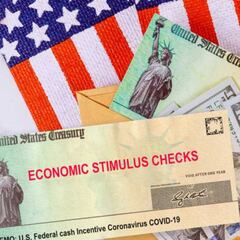Second stimulus check: who would get direct payment first?
Talks are ongoing over a coronavirus economic relief bill in the US, which would be expected to include a second round of direct payments.

Donald Trump abruptly halted talks over a coronavirus relief bill on Tuesday, but negotiations between the White House and Democratic congressional leaders are now back on, having resumed just two days after the Republican US president’s decision to walk away.
White House makes $1.8tn stimulus offer to Democrats
And in a phone call on Friday, Trump negotiator Steve Mnuchin took a new, $1.8tn aid proposal to Democratic counterpart Nancy Pelosi (D-Calif.). “Today, the [Treasury] Secretary returned to the table with a proposal that attempted to address some of the concerns Democrats have,” Pelosi spokesperson Drew Hamill tweeted.
The Speaker and Secretary Mnuchin spoke at 1:40 p.m. via phone for just over 30 minutes. Today, the Secretary returned to the table with a proposal that attempted to address some of the concerns Democrats have. (1/2)
— Drew Hammill (@Drew_Hammill) October 9, 2020
"One step forward, two steps back" - Pelosi
However, House Speaker Pelosi said on Saturday that the offer - which represented a $200bn increase on what the Trump administration had previously said it was willing to spend on stimulus - amounted to "one step forward, two steps back” and will need changes if it is to be supported by congressional Democrats.
Pelosi and Senate Minority Leader Chuck Schumer (D-NY) have been holding out for a package worth over $2tn. Indeed, the Democrat-controlled House of Representatives last week passed a $2.2tn aid plan - one that was dismissed as “dead on arrival” in the Republican-held Senate, where GOP lawmakers sought to limit relief to $1tn in the HEALS Act, a stimulus proposal they released in July.
Bipartisan agreement on second stimulus check
There may be disagreement between Democrats and Republicans over the size and scope of a fifth coronavirus aid bill, but there does appear to be bipartisan consensus that a second stimulus check of up to $1,200 should be included in it.
So if and when a bill does finally go through, when might a second batch of direct payments go out to qualifying Americans, and who would get their cash first?
Second stimulus check: direct-deposit quickest
Speaking in August, Mnuchin said the Internal Revenue Service (IRS) would be able to send the first payments out within about a week, telling reporters: "I can get out 50 million payments really quickly. A lot of it into people's direct accounts.”
This would be quicker than the first round of checks, paid out as part of the CARES Act, a $2.2tn stimulus bill signed into law on 27 March. They began to be distributed via direct deposit by mid-April, some two to three weeks after the bill became law.
As with the CARES Act payments, the first to receive a second stimulus check would be likely to be those whose direct-deposit information is already on file at the IRS, or those who provide their details on the tax office’s website as soon as the registration period begins.
For the CARES checks, Americans who file a tax return were able to enter their bank information in the IRS’ Get My Payment portal, while those who do not normally submit a return used the Non-Filers tool.
Stimulus checks by mail about a week later...
When it comes to those receiving their stimulus checks by mail, meanwhile, the experience of the CARES Act direct payments tells us that these began to be distributed about a week after direct-deposit checks started to arrive.
Although the IRS can reasonably be expected to have streamlined its payment-processing procedure second time around, however, it is worth noting that many who got their CARES Act checks through the mail faced a significant wait for their money.
This followed a warning from the House Ways and Means Committee that it would take about 20 weeks for all stimulus checks sent by post to be delivered.
Related stories
You’ll find a useful, in-depth rundown on potential payment schedules here, courtesy of CNET.
Live coverage of the coronavirus crisis
You can follow live, US-focused coverage of the covid-19 crisis with our dedicated rolling feed.

